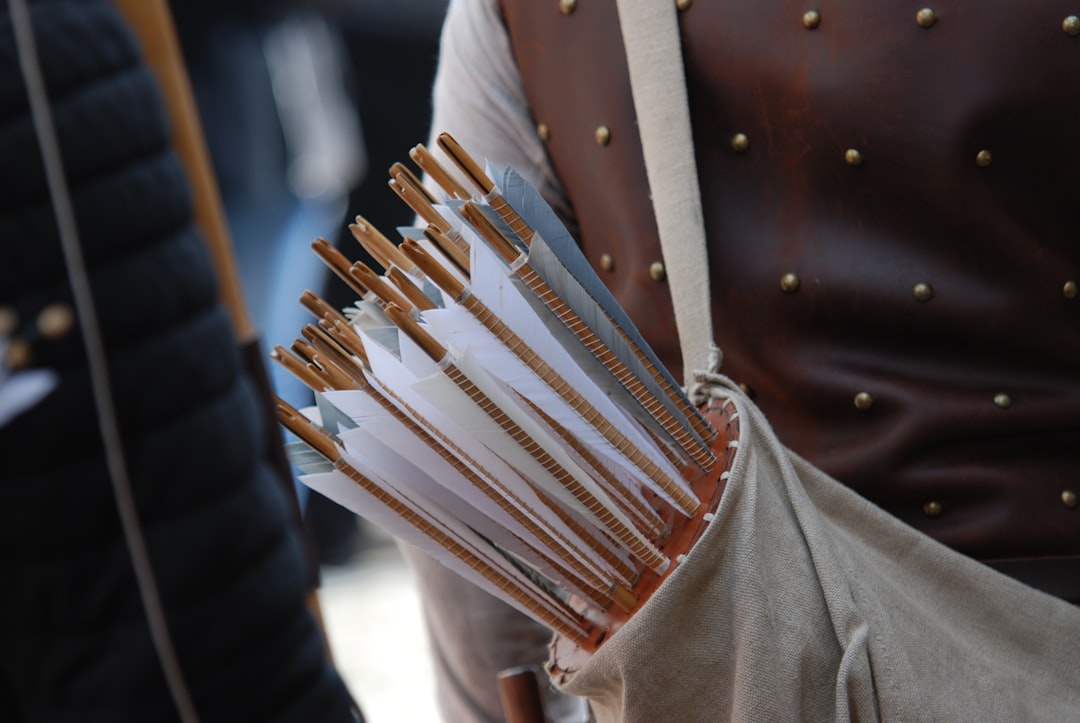Arrows and Teamwork 🏹
The importance of teamwork and why boardgames can help us effectively teach it
Long ago there was a powerful kingdom called Tuyuhun. The 9th king of Tuyuhun was a very wise man named Achai who ruled between 417 to 424 AD. He led a culturally diverse country and helped the country flourish. He was well respected by all tribes and neighbouring countries.
Achai had twenty sons, and he was worried that when he passed away the brothers would fight to gain power, and the country would descend into civil war and chaos.
When Achai was in his dying bed, he called for all his sons. He asked each of them to take an arrow and break it in half. His sons were confused but of course they followed their father’s dying wish. They were strong and great at combat, and one arrow was no match to their brute strength! Soon everyone broke their arrow in half and stood proud in front of their father, hoping it would impress him.
Achai then said, “now pick up twenty arrows and break them”. With all their might, not even the strongest son could break the arrows this time. Looking at the discouraged sons, Achai slowly said, “One arrow is weak, but together they are strong and unbreakable even by the strongest man. If you all work together, you will achieve greatness; if you stand alone, our enemies will defeat us one by one”. After Achai passed away, a peaceful transition of power was carried out, and no history record suggested any infighting between the brothers.
This is a story my father told me when I was young. I have one younger brother, so presumably my father told us this after we fought and broke a couple vases. Did it stop us fighting? Not even a little bit. It did teach me an important lesson though: in order to achieve great mischievous acts (or to avoid getting punished), I needed to work with my brother.
The importance of teamwork
The story and its lessons are still with me today. It is pretty simple really: two are stronger than one, and twenty are definitely even stronger together.
Yet, teamwork remains a difficult skill to teach and practise. It’s one of the many life skills that people struggle to grasp, especially when the teaching or learning strategies are just the usual “talk and listen” or “read and remember” methods.
Theories of teamwork and strategies for effective teamwork are hard to contextualise without experiencing them firsthand. But often in classroom, university, or work environments the stakes for effective teamwork are high. With competing priorities it’s easy for people to dig their heels in, potentially making grave errors, or the same mistake over and over again.
Just imagine if Achai’s sons had to find out the importance of working with their brothers… when they were surrounded by enemies and looking out at their burning kingdom.
So what else can we do to teach and practise teamwork? Use cooperative boardgames.
Teaching teamwork with board games
There is no better way to learn and practise teamwork than in a low-stakes environment where trial and error is encouraged, and mistakes lead to learning.
Many of the classic boardgames we play are primarily competitive games: players are competing with each other, like in Chess, Monopoly, or Snakes and Ladders. You are either the winner or the loser.
In recent years though, many excellent boardgames emerge in which players need to work together to solve the puzzle, kill the boss, or beat the game. This new genre is also referred to as cooperative boardgames.
Zac and I recently ran a workshop training teachers on using boardgames to teach teamwork to university students. It was really interesting because the department reported that “students say they don’t want to learn about teamwork because they think they are already great at it; on the other hand, employers or placement supervisors say students ‘don’t know the first thing about working in a team’”.
So how did we help the trainers?
We introduced them to a number of excellent cooperative boardgames and showed them how to use them in a classroom setting to facilitate learning teamwork, collaboration, and communication skills.
The workshop was a hit and the feedback was fantastic.
My 16 year-old self would not believe it is possible to teach boardgames at a university level.
Help everyone to game & learn
This is one of the main reasons why Zac and I are teaming up. We love boardgames, not just because they are fun, but also they are such great learning tools.
Here at Game & Learn, Zac and I will keep developing content and materials over time to help you (no matter if you are a parent, care-givers, teachers, or just someone who wants to discover cool new board games) to access boardgames easier. We believe boardgames are a great medium for you to spend quality, engaging time with your children or students.
While you are at it, you will also make fond memories with your children and teach them valuable life lessons that they could not learn from standard school curriculum.
I promise, we are not going to just talk about how your kids could work together and become more mischievous. Although, it is likely to be a “beneficial” by-product, and Zac and I hereby deny any legal responsibilities. We are dying to hear these stories though, so please write to us and share them.
Over the next couple issues of the newsletter we’re going to focus on teamwork and introduce you to two more excellent games related to teamwork that you can play with your children or students (or even work colleagues!).
In our first ever newsletter we recommend The Mind, which is a fantastic cooperative game in a small box. If you can’t wait for our next newsletter, click here to read our first recommendation now.
For each recommendation, you will find:
tips and resources to learn, teach, and run the games smoothly
talking points and strategies so you could use the games effectively to teach and practise teamwork
resources to make the game more fun and more replayable
Oh did we mention that it is all free?! Game & Learn is our love project that we believe could make a difference for many parents, teachers, trainers, and most importantly, children. If you are interested, make sure you subscribe to our Newsletter Game & Learn on Substack.
Until then, game & learn with The Mind!



